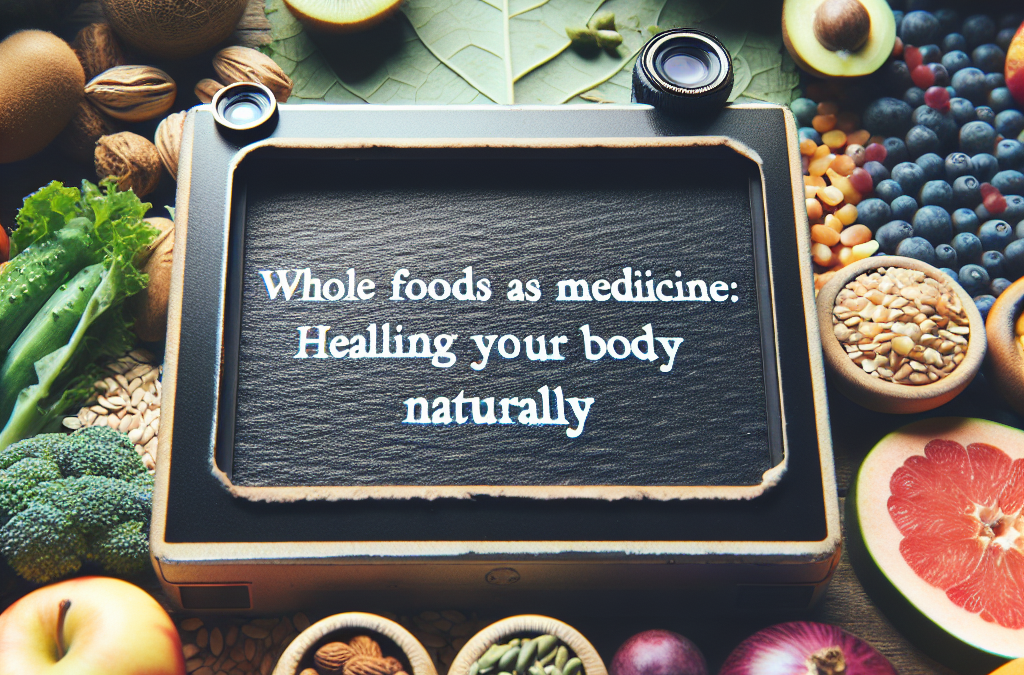Understanding Whole Foods
What Are Whole Foods?
Whole foods are essentially foods that are as close to their natural state as possible. This means unprocessed, unrefined, and free from artificial additives. Think fresh fruits, vegetables, whole grains, nuts, and seeds. I remember the first time I swapped out processed snacks for whole foods. It was a game changer! The simple act of eating something that came straight from nature felt nourishing and revitalizing.
In my journey toward a healthier life, I discovered how whole foods not only taste better but also provide the essential nutrients our bodies need. Unlike processed foods, which are often loaded with unhealthy fats, sugars, and preservatives, whole foods are bursting with vitamins and minerals. When you eat whole, you’re fueling your body with clean energy.
Getting familiar with whole foods can be a bit overwhelming at first. There’s so much information out there! But starting with a few staples like leafy greens, quinoa, and berries can really set you on the right path. As you explore, you’ll find that cooking with real ingredients is not just healthier but so much more fun!
The Healing Power of Fruits and Vegetables
Why Fruits and Veggies Matter
We’ve all heard about the importance of eating our fruits and vegetables. But let me tell you, they are truly nature’s medicine! Each color represents different nutrients that work wonders for our health. For instance, green veggies like spinach are packed with iron, while orange foods, like sweet potatoes, offer a wealth of beta-carotene.
Incorporating a variety of colorful fruits and vegetables in my meals has significantly impacted my well-being. Not only do they support my immune system, but they also encourage healthy digestion and skin health. And who doesn’t want a natural glow, right?
I’ve found that experimenting with seasonal produce can be super exciting! Whether it’s trying out a new recipe with those fresh berries in summer or roasting root veggies in the fall, there’s always something delicious and nutritious to look forward to.
The Role of Whole Grains
Whole Grains vs. Refined Grains
Switching from refined grains to whole grains was a revelation for me. Whole grains like brown rice, oats, and barley maintain the fiber and nutrients that are stripped away during processing. It’s like choosing the whole package instead of the good bits! The fiber in whole grains is vital for digestive health, and it helps to keep you feeling full longer.
The benefits don’t stop at digestion; whole grains have been shown to lower the risk of heart disease, diabetes, and certain cancers. Honestly, who wouldn’t want to boost their health in such a delicious way? I often use quinoa as a base for my bowls, and it’s both satisfying and nutritious.
And let’s not overlook how easy it is to include whole grains in your diet. From breakfast cereals to dinner sides, there’s literally a myriad of options available to enjoy. Try adding some whole grain bread with avocado for a quick snack—it’s so good!
Healthy Fats: The Good Guys
Types of Healthy Fats
Let’s break down one of the biggest myths: fats are not the enemy! Healthy fats from sources like avocados, nuts, and olive oil are essential for our bodies. They play a crucial role in brain health and hormone production. I was surprised to learn just how much healthy fats can enhance nutrient absorption in other foods!
Get an Amazing Discount on the Best Certified Organic Whole Food Supplement!
Incorporating these fats into my meals not only makes them tastier but also gives me sustained energy throughout the day. Believe me, no one likes a crash mid-afternoon! A handful of almonds or a slice of avocado toast do wonders for my mood and focus.
Plus, fats add a richness to dishes that is undeniable. A drizzle of olive oil on salads or roasted veggies can transform an ordinary meal into something spectacular. Don’t shy away from fats—they’re your kitchen’s best friend!
Hydration: The Often-Overlooked Element
The Importance of Water
Let’s chat about something that’s often neglected: hydration. It’s easy to forget about drinking enough water amidst our daily hustle and bustle, but trust me, staying hydrated is key to feeling great. Our bodies rely on water to function properly—including digestion and nutrient absorption.
I made it a habit to carry a reusable water bottle everywhere I go. It’s such a simple yet impactful change. Infusing water with fruits or herbs not only makes it tastier but also encourages me to drink more throughout the day!
Remember, hydration isn’t just about water alone. Herbal teas, coconut water, and even watery fruits like cucumbers and oranges can help quench your thirst. The goal is to keep our cells happy and well-hydrated for optimal health.
Frequently Asked Questions
1. What are whole foods?
Whole foods are foods that are minimally processed and free from artificial additives. They include fruits, vegetables, whole grains, nuts, and seeds.
2. How do fruits and veggies heal the body?
Fruits and vegetables are rich in vitamins, minerals, and antioxidants that support various bodily functions, boost the immune system, and can reduce the risk of chronic diseases.
3. Why are whole grains preferred over refined grains?
Whole grains retain their nutrients and fiber, which are lost during the refining process. This makes them better for digestive health and provides longer-lasting energy.
4. What are examples of healthy fats?
Healthy fats include sources like avocados, olive oil, nuts, and fish. They support brain health and are essential for hormone production.
5. How can I improve my hydration?
Carry a water bottle, infuse water with fruits or herbs, and include hydrating foods like cucumbers and melons in your diet to improve hydration.





